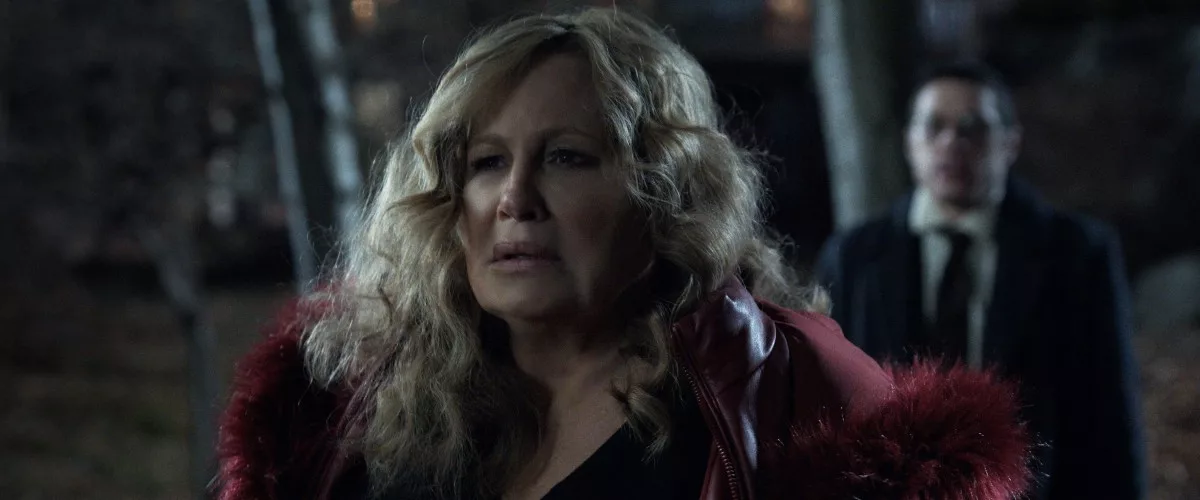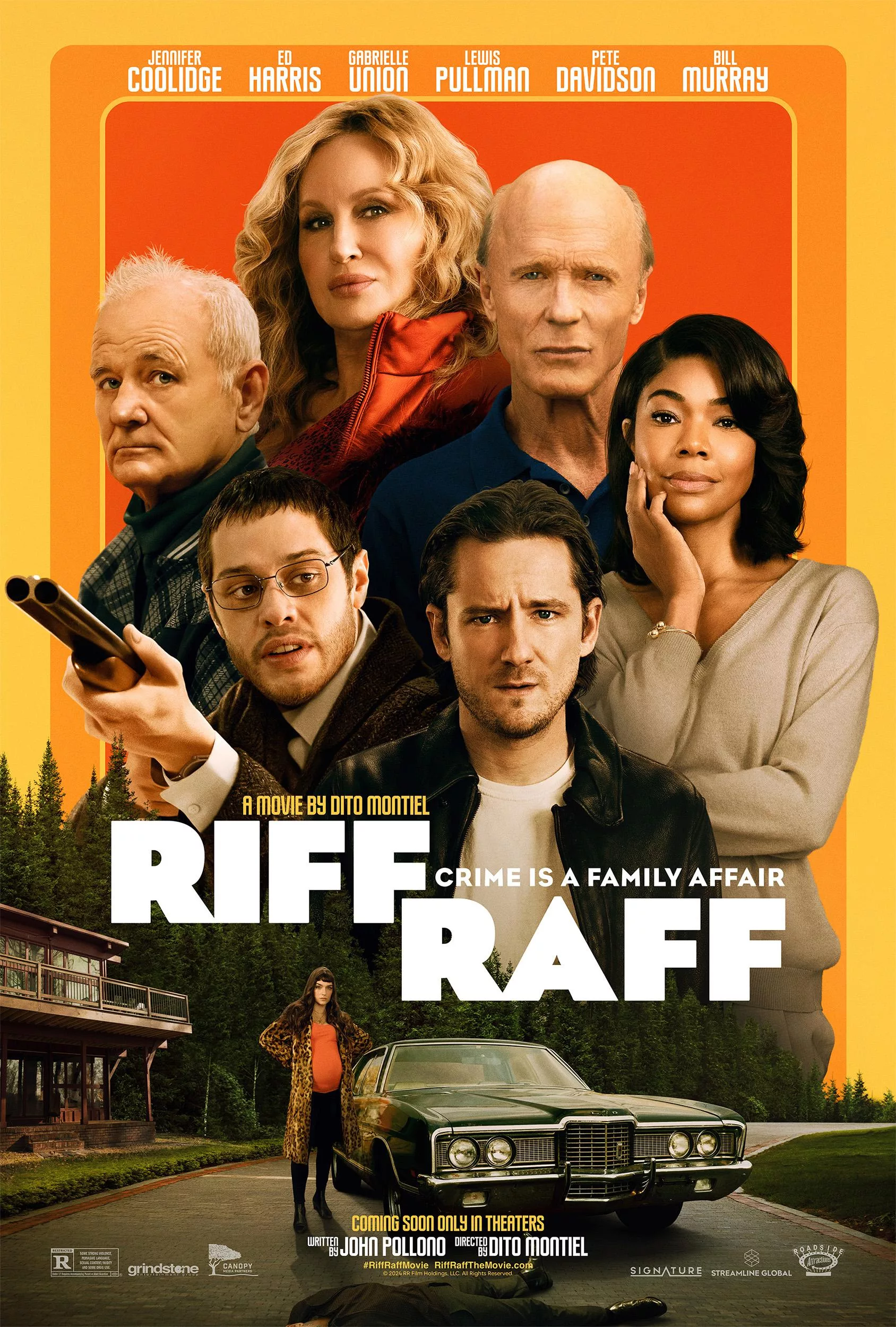In “Riff Raff,” Dito Montiel’s clumsy mashup of crime and comedy, every performer in the film’s impressive ensemble haphazardly phones in a persona they’ve portrayed before. You’ve seen this all before: Jennifer Coolidge is affably tentative and horny, Ed Harris is a generic tough dad (more down to earth than the one he recently played in “Love Lies Bleeding”), Bill Murray is a reliably blasé baddie, Pete Davidson is slightly unhinged, and so on. In other words, there doesn’t seem to be a single original bone in this film’s body that gives you a parade of half-baked comedic scenes braided with a trite thriller and family mystery.
That’s too bad, because Montiel is a filmmaker who once proved to know his way around inventiveness through “A Guide to Recognizing Your Saints” (2006), his autobiographical tale that had something fresh to say at the intersection of an authentic coming of age story and a solid crime picture. The start of “Riff Raff” reminds one of that voice, but only temporarily, when the instantly lovable DJ (Miles J. Harvey, who should have had a bigger part in the film), is seen holding his stepfather Vincent (Harris) at gunpoint. With an inviting voiceover, DJ explains that none of what we see was in the cards for him. Instead, the young man was just getting ready to become a freshman at Dartmouth, and the whole confrontation with his stepdad would only make sense if he’d go back to the beginning to tell us the whole story.
That he does, with John Pollono’s chaotic screenplay that takes its time to intensify, whisking us back in time and proving DJ’s words: family is something you don’t worry about when things are good. (Hint: In this family, things are exceedingly complicated.) In a flashback, we meet DJ’s step-brother Rocco and his pregnant Italian girlfriend Marina (Lewis Pullman and Emanuela Postaccihini, doing what they can with their cliché-ridden characters). The down-on-their-luck duo are somehow mixed up in a brutal crime and are being targeted by Davidson’s Lonny and Murray’s Leftie, two quirky, bantering gangsters, the superior likes of which we’ve seen plenty of times in Coen Brothers and Martin Scorsese movies. We witness their ruthlessness enough to know that Leftie and Lonny aren’t the types to show any mercy. So we root for Marina—written as a generically earthy, sensual Italian woman—and a frantic Rocco, when they reach Maine where DJ, his dad Vincent and his mother Sandy (Gabrielle Union) live. Tagging along with them is Ruth (Coolidge), Vincent’s spacey ex-wife, who is not exactly welcome in the cabin.
For a movie set during the holiday season, it’s almost shocking how little Montiel takes advantage of this backdrop, which could have provided a nice juxtaposition to the crime-comedy he’s steering. Same thing goes for the tale’s Maine setting—there isn’t enough specificity in the film’s locations and production design that makes “Riff Raff” feel like a lived-in New England picture. Still, there are a number of well-parsed flashbacks that enrich the present-day story Montiel and Pollono tell. With some back-and-fort in the story’s timeline, we get glimpses into the sweet beginnings of Rocco and Marina’s relationship, get to know the relatable geekiness of DJ who’s just been heartlessly dumped by his girlfriend, and witness Sandy introducing Vincent to her wealthy and disapproving parents suspicious of Vincent’s suitability for their daughter.
Rest assured, the mysterious entanglement in which these hapless characters have found themselves eventually makes sense in “Riff Raff.” But the clarity and answers arrive too late in the story, culminating in a violent finale that feels unearned and out of place. Even more implausible is the comforting parting note that “Riff Raff” leaves you with on the heels of that violence. That abrupt switch in tone is a problem with the whole movie that ping-pongs between an idiosyncratic comedy and a deeply serious thriller. Not that a film couldn’t embrace multiple genres, but the way Montiel and Pollono navigate the story’s shifts leaves you hungry nonetheless, both for a better dark comedy with teeth, and a sharper, more notorious crime flick—qualities that the films “Riff Raff” nods to (from “Goodfellas” to “No Country for Old Men”) have in heaps. Here, you get neither.




















